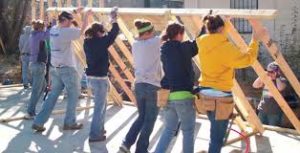
Since the goal of Care Teams is to help others grow through serving, the best way to make sure that happens is to train the Care Leaders. As mentioned in “It Begins With Prayer” by Dwayne McCrary, even making simple phone calls requires some training.
We always want volunteers to have a good experience serving, which is why it’s always a good idea to provide a clear ministry description and training. Here are some things to consider including in your training:
- Talk about the importance of confidentiality. When people share prayer needs or family concerns this information should always be considered confidential unless they have been given permission to share it.
- The length of the call. There is no hard-set rule for this, but always be considerate of other people’s time. I’ve found that people appreciate it when you ask them at the beginning of the call if they have a few minutes to talk.
- Listen to discover needs. The purpose of your call is to provide care, and there may be a specific need that you can’t help them with but someone else can. Again, before sharing any information about the person always ask permission.
- Remember to pray for them before you get off the call. One of the greatest ways to say we care is to lift their concerns up to God in prayer. Take time and pray for them on the call, this is the best way to be sure that you won’t forget.
These are just a few of things to consider for your training, as you develop the ministry description consider what skills are needed and look for ways to help your Care Leaders develop them.
Written by David Ludwig, Associate Director of Healthy Churches, Baptist Resource Network of Pennsylvania and South Jersey



